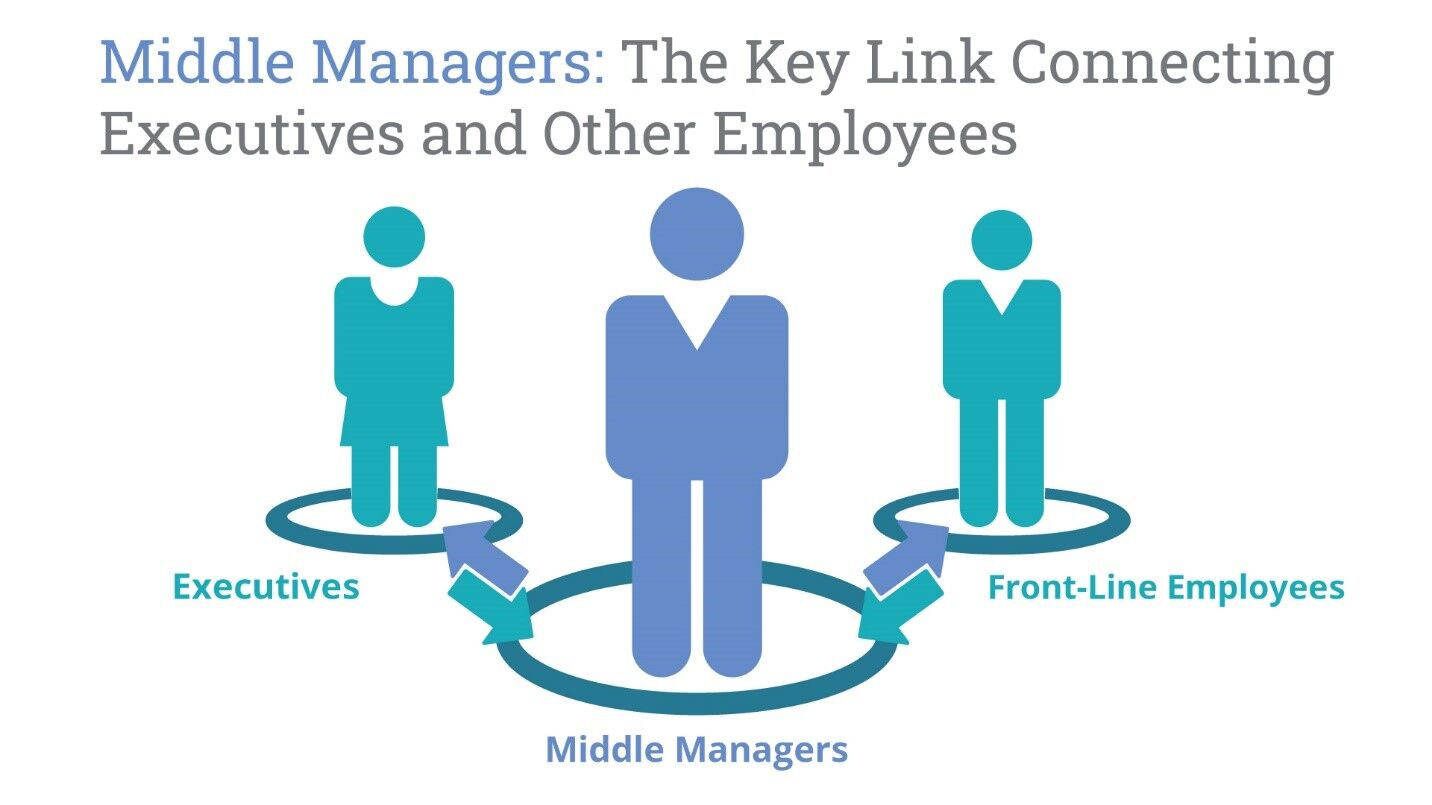Understanding The Value Of Middle Managers: Benefits For Companies And Their Staff

Table of Contents
The Crucial Role of Middle Managers in Bridging the Gap
Middle managers serve as a vital bridge, connecting upper management's strategic vision with the day-to-day operations and frontline employees. Their role is multifaceted and crucial to organizational success.
Improving Communication and Collaboration
Effective middle managers are masters of communication, ensuring a smooth flow of information between upper management and their teams. This prevents miscommunication, keeps everyone informed, and fosters a collaborative work environment.
- Regular Team Meetings: Middle managers facilitate regular meetings to discuss updates, address concerns, and brainstorm solutions.
- Transparent Information Sharing: They actively share relevant information with their teams, fostering transparency and trust.
- Open-Door Policies: Middle managers often adopt open-door policies, encouraging open dialogue and feedback from their team members.
- Utilizing Collaboration Tools: Middle managers leverage communication and project management software to streamline information sharing and collaboration amongst team members.
These strategies enhance communication, collaboration, and overall teamwork, directly impacting team productivity and morale.
Mentoring and Developing Future Leaders
Beyond managing daily operations, middle managers play a critical role in identifying and nurturing future leaders within their teams. They act as mentors and coaches, fostering employee growth and contributing to a strong leadership pipeline.
- Coaching and Feedback: They provide regular coaching and constructive feedback, helping employees improve their skills and performance.
- Identifying High-Potential Employees: Middle managers are well-positioned to recognize high-potential employees and advocate for their development.
- Providing Development Opportunities: They actively seek out and provide opportunities for employees to enhance their skills and advance their careers.
- Succession Planning: By identifying and developing future leaders, middle managers contribute directly to robust succession planning, ensuring organizational stability.
Investing in the development of future leaders through effective middle management significantly enhances long-term organizational health and success.
Boosting Employee Engagement and Productivity
Middle managers are directly responsible for creating a supportive and motivating work environment, significantly impacting employee engagement and productivity. Their actions directly affect team morale and performance.
Creating a Supportive and Motivating Work Environment
Middle managers who foster a positive and supportive work environment cultivate high levels of employee engagement.
- Recognizing Achievements: Celebrating successes, both big and small, motivates employees and reinforces positive behaviors.
- Constructive Feedback: Providing regular, constructive feedback helps employees learn and grow, improving their performance.
- Addressing Concerns Promptly: Responding quickly and effectively to employee concerns demonstrates care and builds trust.
- Promoting Work-Life Balance: Supporting a healthy work-life balance boosts employee morale and productivity.
These actions contribute to a positive work environment, leading to higher levels of employee engagement and increased productivity.
Improved Performance Management and Accountability
Effective middle managers play a key role in setting clear goals, monitoring progress, and holding team members accountable. This ensures that projects are completed on time and to the required standard.
- Setting SMART Goals: Middle managers work with their teams to define Specific, Measurable, Achievable, Relevant, and Time-bound goals.
- Regular Performance Reviews: They conduct regular performance reviews to assess progress, provide feedback, and identify areas for improvement.
- Constructive Feedback and Coaching: Providing regular, constructive feedback and coaching helps employees improve their performance and achieve their goals.
- Addressing Performance Issues Promptly: Addressing performance issues quickly and effectively helps prevent larger problems from developing.
Through consistent performance management, middle managers directly impact the overall productivity and success of their teams.
Strategic Implementation and Operational Efficiency
Middle managers are essential for translating high-level strategic goals into actionable plans and ensuring operational efficiency. They act as the vital link between strategy and execution.
Translating Company Strategy into Actionable Plans
Middle managers are crucial for taking strategic objectives and transforming them into manageable tasks and goals for their teams.
- Breaking Down Large Projects: They break down large projects into smaller, manageable tasks, making them less daunting and easier to track.
- Assigning Roles and Responsibilities: They clearly define roles and responsibilities within their teams, ensuring everyone understands their contributions.
- Setting Deadlines and Milestones: Establishing realistic deadlines and milestones helps teams stay on track and meet their objectives.
- Resource Allocation: Effective middle managers ensure that teams have the resources they need to succeed.
This process of strategic implementation ensures that company-wide goals are successfully achieved.
Identifying and Addressing Operational Challenges
Middle managers are often the first to identify and address operational challenges, preventing minor problems from escalating into major issues. Their proactive problem-solving skills are invaluable.
- Identifying Bottlenecks: They identify bottlenecks and inefficiencies in workflows, suggesting improvements to streamline operations.
- Implementing Process Improvements: They actively seek out and implement process improvements to increase efficiency and productivity.
- Resource Allocation and Optimization: They optimize resource allocation to maximize efficiency and minimize waste.
- Proactive Problem Solving: Their proactive approach to problem-solving prevents minor issues from escalating into major disruptions.
By proactively addressing operational challenges, middle managers contribute significantly to overall operational efficiency and organizational success.
Conclusion
Effective middle managers are essential for organizational success. Their contributions extend far beyond simple task management, encompassing improved communication, enhanced employee engagement, streamlined operations, and strategic implementation. They are the bridge between leadership and execution, impacting both company performance and employee satisfaction. Rethink your approach to middle management; recognize and invest in their development. By fostering a supportive environment and providing the necessary tools and training, you unlock the full potential of your middle managers, ultimately driving organizational growth and achieving company goals. Investing in your middle managers is investing in the future success of your entire organization.

Featured Posts
-
 Record Breaking Peterborough Manager Darren Fergusons Post Match Comments
May 20, 2025
Record Breaking Peterborough Manager Darren Fergusons Post Match Comments
May 20, 2025 -
 Germany Italy Quarterfinal A Preview And Prediction
May 20, 2025
Germany Italy Quarterfinal A Preview And Prediction
May 20, 2025 -
 Pro D2 Colomiers Vs Oyonnax Et Montauban Vs Brive Matchs A Suivre
May 20, 2025
Pro D2 Colomiers Vs Oyonnax Et Montauban Vs Brive Matchs A Suivre
May 20, 2025 -
 Winter Weather Advisory A Guide To School Closures And Delays
May 20, 2025
Winter Weather Advisory A Guide To School Closures And Delays
May 20, 2025 -
 L Affaire Jaminet Kylian S Exprime Sur Le Transfert De Son Frere Melvyn
May 20, 2025
L Affaire Jaminet Kylian S Exprime Sur Le Transfert De Son Frere Melvyn
May 20, 2025
